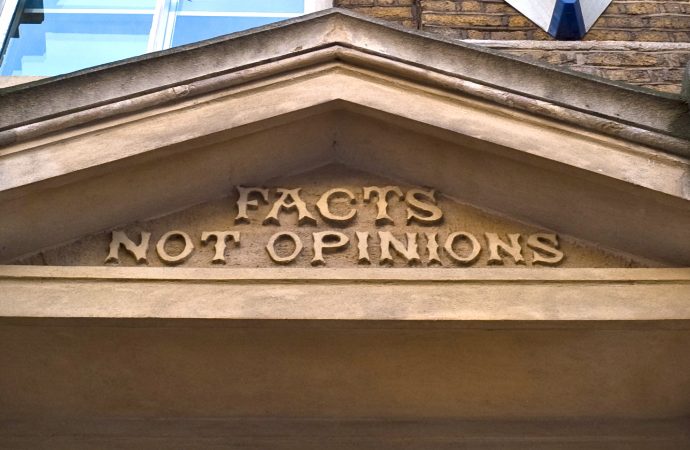In response to my post “Where Have All The Bad Scientific Talks Gone?”, I’ve received a variety of feedback from readers who expressed exasperation about the way science and innovation are often discussed.
There are concerns that, in general, these areas are becoming overcrowded with growing levels of clichés and even nonsensical terms. Expressions that possibly echo delusions of grandeur, demonstrate the disconnection between what a person “thinks” and what is actually known, or simply conceal a disregard for evidence.
In these conversations, multiple instances of irritating expressions have been highlighted, which can be found in a wide range of media: from scientific publications and all kinds of meetings to official business communication and journalism. A selected glossary of such commonly used expressions follows.
‘I am not an expert, but…’
Common usage: ‘I am not an expert, but I think you should…’, or variations of the sentence following ‘but’. This is an archetypal indicator of an incoming cloud of conceit, especially in meetings with a multi-disciplinary audience. However, it can be heard in different contexts and is not necessarily used by researchers only.
Likely origin: Some people’s need for constant validation.
Possible actual meanings: I am going to say something to justify my presence in this meeting, or alternatively: my opinion matters more than years of research or scientific consensus. Also used to avoid a proper argument or hide behind a screen of false modesty.
‘At the end of the day’
Common usage: ‘You know, at the end of the day…’, ‘I agree, but at the end of the day…’. This expression is also a major hit in tech transfer and entrepreneurial circles.
Likely origin: Anglo-American sport commentating and politics.
Possible actual meanings: I will ignore what everybody else has just said, and will try to politely impose my wishful thinking. Conversely, it may indicate that the user has just run out of ideas.
‘Shedding light’
Common usage: This is not only a classic expression in science journalism, e.g., ‘Scientists shed light on…’, but also in research articles, e.g., ‘This study sheds light on…’ Alternative use: ‘throwing light’.
Likely origin: The clairvoyant community.
Possible actual meanings: There is nothing truly exciting here, but it is a well-crafted and nicely reported incremental advance.
‘Leverage’
Common usage: ‘In this research we leverage…’, ‘this project leverages resources…’.
Likely origin: Financial sector nomenclature. Its extensive use may be a symptom of banking sector envy.
Possible actual meanings: We are doing a bunch of things, and together they will eventually lead up to other bigger, hopefully fundable things.
‘Visionary’
Common usage: Different versions of he/she ‘is a visionary in the field of…’.
Likely origin: Business-oriented literature that is easily recognizable at airport bookstores.
Possible actual meanings: When this characterization is clearly unmerited, it may suggest that either the term user or its recipient have limited practical skills. When used as a self-description, it is surely a sign of illusory male overconfidence.
We may interpret the overuse (or misuse) of these and other expressions in different ways. Some of us may argue that this is just a reflection of the homogenization of language in science communication in general. Others may point out that some of these expressions highlight the pressure to show, particularly to funders and politicians, that research and education can become highly efficient engines of profit maximization.
Or perhaps there is something more troubling. Are researchers and the public increasingly establishing fuzzier boundaries between opinions and facts? Or maybe it is another prominent feature of societies that are getting used to confusing overvalued expectations with actual effects, desires with needs, and reality with delusion.





